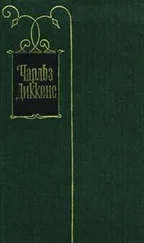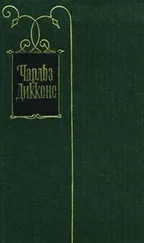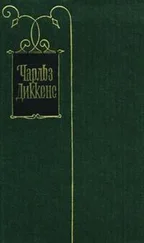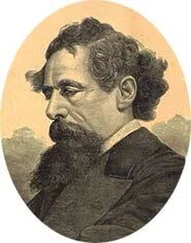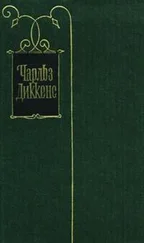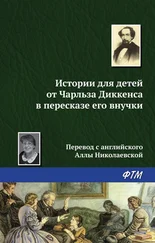Чарльз Диккенс - A House to Let
Здесь есть возможность читать онлайн «Чарльз Диккенс - A House to Let» весь текст электронной книги совершенно бесплатно (целиком полную версию без сокращений). В некоторых случаях можно слушать аудио, скачать через торрент в формате fb2 и присутствует краткое содержание. Год выпуска: 2000, Жанр: Классическая проза, на английском языке. Описание произведения, (предисловие) а так же отзывы посетителей доступны на портале библиотеки ЛибКат.
- Название:A House to Let
- Автор:
- Жанр:
- Год:2000
- ISBN:нет данных
- Рейтинг книги:3 / 5. Голосов: 1
-
Избранное:Добавить в избранное
- Отзывы:
-
Ваша оценка:
- 60
- 1
- 2
- 3
- 4
- 5
A House to Let: краткое содержание, описание и аннотация
Предлагаем к чтению аннотацию, описание, краткое содержание или предисловие (зависит от того, что написал сам автор книги «A House to Let»). Если вы не нашли необходимую информацию о книге — напишите в комментариях, мы постараемся отыскать её.
A House to Let — читать онлайн бесплатно полную книгу (весь текст) целиком
Ниже представлен текст книги, разбитый по страницам. Система сохранения места последней прочитанной страницы, позволяет с удобством читать онлайн бесплатно книгу «A House to Let», без необходимости каждый раз заново искать на чём Вы остановились. Поставьте закладку, и сможете в любой момент перейти на страницу, на которой закончили чтение.
Интервал:
Закладка:
Alice’s father-in-law grew more and more feeble as winter advanced. She was of great use to her step-mother in nursing and amusing him; and, although there was anxiety enough in the household, there was perhaps more of peace than there had been for years; for Mrs. Wilson had not a bad heart, and was softened by the visible approach of death to one whom she loved, and touched by the lonely condition of the young creature, expecting her first confinement in her husband’s absence. To this relenting mood Norah owed the permission to come and nurse Alice when her baby was born, and to remain to attend on Captain Wilson.
Before one letter had been received from Frank (who had sailed for the East Indies and China), his father died. Alice was always glad to remember that he had held her baby in his arms, and kissed and blessed it before his death. After that, and the consequent examination into the state of his affairs, it was found that he had left far less property than people had been led by his style of living to imagine; and, what money there was, was all settled upon his wife, and at her disposal after her death. This did not signify much to Alice, as Frank was now first mate of his ship, and, in another voyage or two, would be captain. Meanwhile he had left her some hundreds (all his savings) in the bank.
It became time for Alice to hear from her husband. One letter from the Cape she had already received. The next was to announce his arrival in India. As week after week passed over, and no intelligence of the ship’s arrival reached the office of the owners, and the Captain’s wife was in the same state of ignorant suspense as Alice herself, her fears grew most oppressive. At length the day came when, in reply to her inquiry at the Shipping Office, they told her that the owners had given up Hope of ever hearing more of the Betsy-Jane, and had sent in their claim upon the underwriters. Now that he was gone for ever, she first felt a yearning, longing love for the kind cousin, the dear friend, the sympathising protector, whom she should never see again,—first felt a passionate desire to show him his child, whom she had hitherto rather craved to have all to herself—her own sole possession. Her grief was, however, noiseless, and quiet—rather to the scandal of Mrs. Wilson; who bewailed her step-son as if he and she had always lived together in perfect harmony, and who evidently thought it her duty to burst into fresh tears at every strange face she saw; dwelling on his poor young widow’s desolate state, and the helplessness of the fatherless child, with an unction, as if she liked the excitement of the sorrowful story.
So passed away the first days of Alice’s widowhood. Bye-and-bye things subsided into their natural and tranquil course. But, as if this young creature was always to be in some heavy trouble, her ewe-lamb began to be ailing, pining and sickly. The child’s mysterious illness turned out to be some affection of the spine likely to affect health; but not to shorten life—at least so the doctors said. But the long dreary suffering of one whom a mother loves as Alice loved her only child, is hard to look forward to. Only Norah guessed what Alice suffered; no one but God knew.
And so it fell out, that when Mrs. Wilson, the elder, came to her one day in violent distress, occasioned by a very material diminution in the value the property that her husband had left her,—a diminution which made her income barely enough to support herself, much less Alice—the latter could hardly understand how anything which did not touch health or life could cause such grief; and she received the intelligence with irritating composure. But when, that afternoon, the little sick child was brought in, and the grandmother—who after all loved it well—began a fresh moan over her losses to its unconscious ears—saying how she had planned to consult this or that doctor, and to give it this or that comfort or luxury in after yearn but that now all chance of this had passed away—Alice’s heart was touched, and she drew near to Mrs. Wilson with unwonted caresses, and, in a spirit not unlike to that of, Ruth, entreated, that come what would, they might remain together. After much discussion in succeeding days, it was arranged that Mrs. Wilson should take a house in Manchester, furnishing it partly with what furniture she had, and providing the rest with Alice’s remaining two hundred pounds. Mrs. Wilson was herself a Manchester woman, and naturally longed to return to her native town. Some connections of her own at that time required lodgings, for which they were willing to pay pretty handsomely. Alice undertook the active superintendence and superior work of the household. Norah, willing faithful Norah, offered to cook, scour, do anything in short, so that, she might but remain with them.
The plan succeeded. For some years their first lodgers remained with them, and all went smoothly,—with the one sad exception of the little girl’s increasing deformity. How that mother loved that child, is not for words to tell!
Then came a break of misfortune. Their lodgers left, and no one succeeded to them. After some months they had to remove to a smaller house; and Alice’s tender conscience was torn by the idea that she ought not to be a burden to her mother-in-law, but ought to go out and seek her own maintenance. And leave her child! The thought came like the sweeping boom of a funeral bell over her heart.
Bye-and-bye, Mr. Openshaw came to lodge with them. He had started in life as the errand-boy and sweeper-out of a warehouse; had struggled up through all the grades of employment in the place, fighting his way through the hard striving Manchester life with strong pushing energy of character. Every spare moment of time had been sternly given up to self-teaching. He was a capital accountant, a good French and German scholar, a keen, far-seeing tradesman; understanding markets, and the bearing of events, both near and distant, on trade: and yet, with such vivid attention to present details, that I do not think he ever saw a group of flowers in the fields without thinking whether their colours would, or would not, form harmonious contrasts in the coming spring muslins and prints. He went to debating societies, and threw himself with all his heart and soul into politics; esteeming, it must be owned, every man a fool or a knave who differed from him, and overthrowing his opponents rather by the loud strength of his language than the calm strength if his logic. There was something of the Yankee in all this. Indeed his theory ran parallel to the famous Yankee motto—“England flogs creation, and Manchester flogs England.” Such a man, as may be fancied, had had no time for falling in love, or any such nonsense. At the age when most young men go through their courting and matrimony, he had not the means of keeping a wife, and was far too practical to think of having one. And now that he was in easy circumstances, a rising man, he considered women almost as incumbrances to the world, with whom a man had better have as little to do as possible. His first impression of Alice was indistinct, and he did not care enough about her to make it distinct. “A pretty yea-nay kind of woman,” would have been his description of her, if he had been pushed into a corner. He was rather afraid, in the beginning, that her quiet ways arose from a listlessness and laziness of character which would have been exceedingly discordant to his active energetic nature. But, when he found out the punctuality with which his wishes were attended to, and her work was done; when he was called in the morning at the very stroke of the clock, his shaving-water scalding hot, his fire bright, his coffee made exactly as his peculiar fancy dictated, (for he was a man who had his theory about everything, based upon what he knew of science, and often perfectly original)—then he began to think: not that Alice had any peculiar merit; but that he had got into remarkably good lodgings: his restlessness wore away, and he began to consider himself as almost settled for life in them.
Читать дальшеИнтервал:
Закладка:
Похожие книги на «A House to Let»
Представляем Вашему вниманию похожие книги на «A House to Let» списком для выбора. Мы отобрали схожую по названию и смыслу литературу в надежде предоставить читателям больше вариантов отыскать новые, интересные, ещё непрочитанные произведения.
Обсуждение, отзывы о книге «A House to Let» и просто собственные мнения читателей. Оставьте ваши комментарии, напишите, что Вы думаете о произведении, его смысле или главных героях. Укажите что конкретно понравилось, а что нет, и почему Вы так считаете.

